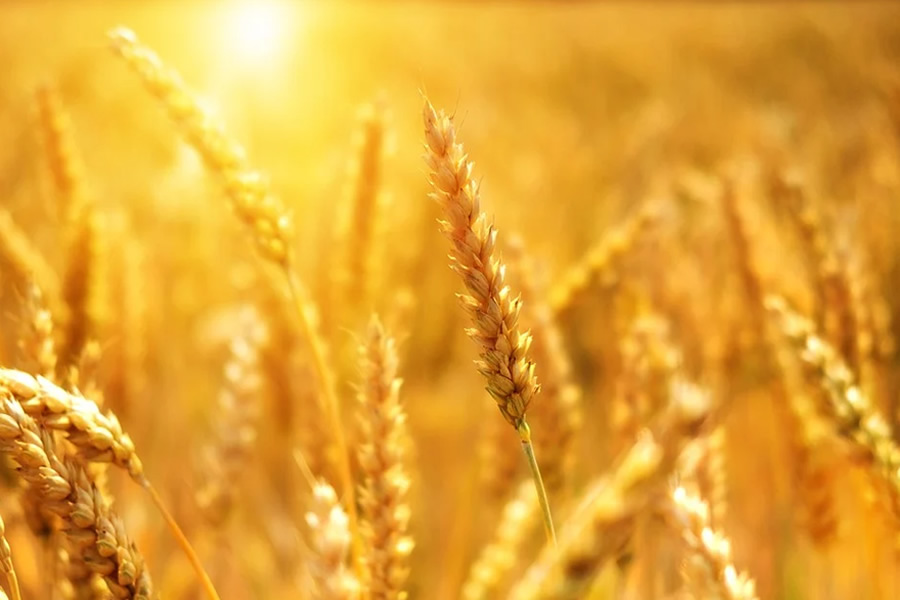Blog & Pastor Letters

Sixteenth Sunday in Ordinary Time
07-23-2023Weekly ReflectionDeacon John Cantirino“Remember the day of your death. But keep the day of resurrection and of presentation to God in remembrance also. Imagine the fearful and terrible judgment period.” Evagrius, desert father, monk, deacon, companion of St. Gregory of Nazianzen
We live in perplexing and complicated times. There are so many mixed, and contradictory, messages being promulgated on everything — the understanding of family, roles in society, moral and ethical issues, et cetera. But one of the controversial issues that is often denied, while at the same time advocated for, is that of death.
There are many efforts to avoid death, to minimize its importance, and even to deny that it has any consequences for the individual, other than perhaps simply no longer existing. There are efforts to upload a person’s consciousness into a computer so that, the claim goes, the person will exist forever. Then, there are efforts to freeze the individual and hopefully be able, at some point in the future when there is the technological capability, to bring the person back to life. There are other efforts also, but the whole point is that death is not considered final; we can never face that final moment.
Interestingly, there is also the right-to-die movement, in its various forms, that rather than deny death, advocate for it as the route to the ultimate personal power, the route to somehow being in charge. In this view, death is not to be overcome but embraced under certain conditions that the individual chooses. Interesting, isn’t it? In one instance death is to be avoided, in the other instance death is to be embraced but under conditions of the person’s choosing. Nowhere, in either of these positions, is any consideration of what death really means, no consideration of consequences or judgement, or an eternal destiny.
But for the faithful, death has a much deeper reality behind it. There will be a reckoning, there will be a judgment, there will be reward or punishment. Our Lord, in today’s Gospel, makes this clear to us. He does this not to frighten us but to wake us up to the final reality. He wants us to be aware, well ahead of that final moment each of us must face, so we may live rightly.
The world, and life in it, can be complicated. It is easy to get entangled with people, desires, and actions that can endanger our spiritual life and holiness. There are endless “weeds” that always sprout near us, that can always choke the life of grace out of us. Temptations abound and are ever present to us. Today, given the explosion of an infinite choice and all-pervasive entertainment, the erosion of traditional values and social mores, and the acceptance of relativism by many, it is an extremely difficult environment for a person of faith to live a holy and pure life.
But we are far from defenseless in this battle. Our Lord, in his infinite wisdom, bestowed the sacraments to nourish and protect us. The sacrament of penance is needed now more than ever. This sacrament, while central for forgiveness of mortal sin, nonetheless should be received regularly for it has another benefit that is greatly needed now; that of spiritual discipline. Receiving the sacrament of penance (or reconciliation) requires humility and discipline along with honesty. It may not be easy to honestly examine our sins. It may not be easy to verbalize those sins to the priest. But, besides forgiveness, there will come a spiritual strength, a discipline of will, a readiness to live a holy life, despite the temptations and pressures to do otherwise.
We must not be fooled into thinking that all will be well in the end, no matter how we live today. It often does seem that those who give no regard to a spiritual life, who often are proud of their rejection and ridicule of holiness, faith, truth, or right behavior, do prosper. But we need to keep in mind that, given enough time, the weeds will be separated from the wheat that produce as God has intended. There will be punishment and reward depending on how one’s life is lived.
All the technology in the world cannot stop death from eventually happening. All the social and philosophical movements that attempt to master death, to put it into our control, that ignore what happens after that final moment, will be exposed for their errors. We cannot control death, but we can impact what happens following it. We can choose our actions, our priorities, our entire spiritual life, and trajectory, through the lens of death. In imitation of our savior Jesus Christ the Lord death can bring life, death can bring resurrection, death can bring eternal glory with God. And the simple way not let the “weeds” of this life overwhelm or entangle you is to follow the advice of Saint John Vianney: “Here is a rule for everyday life: do not do anything which you cannot offer to God.”
BACK TO LIST